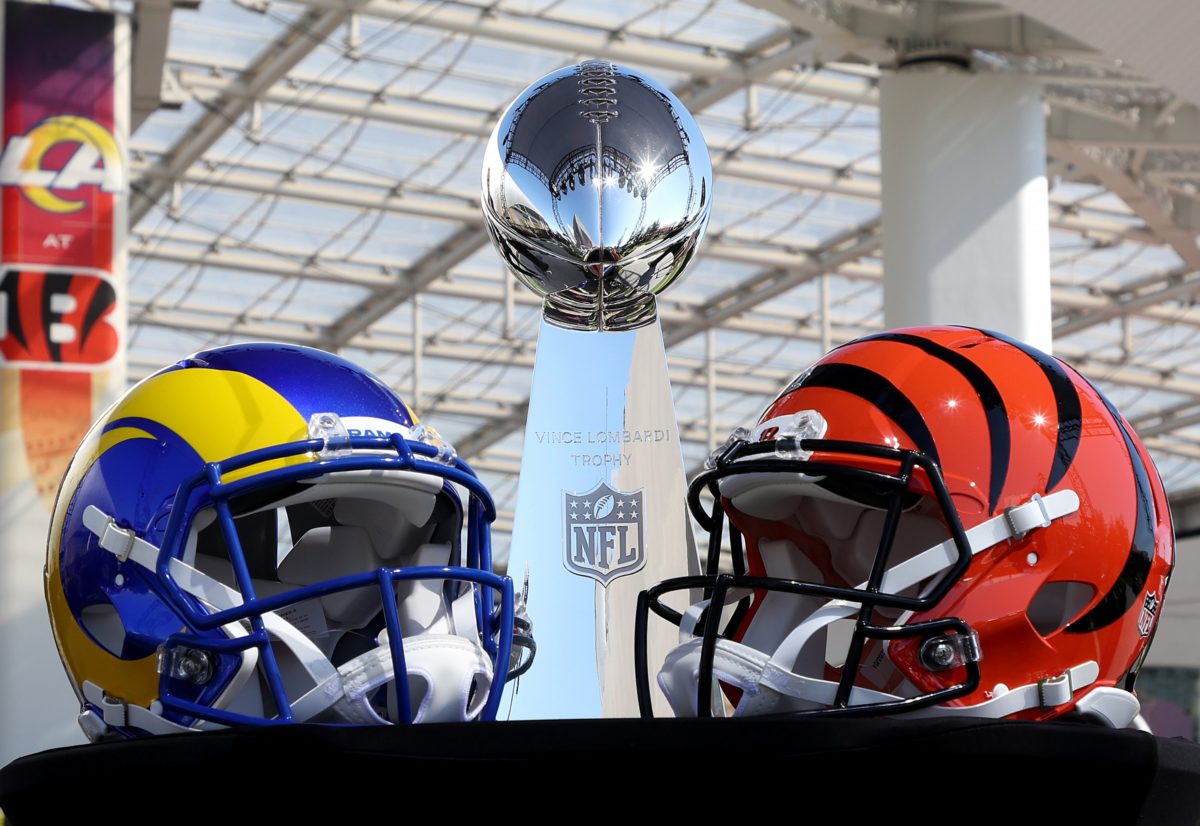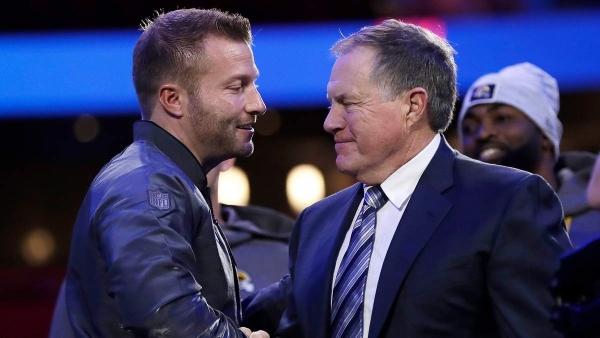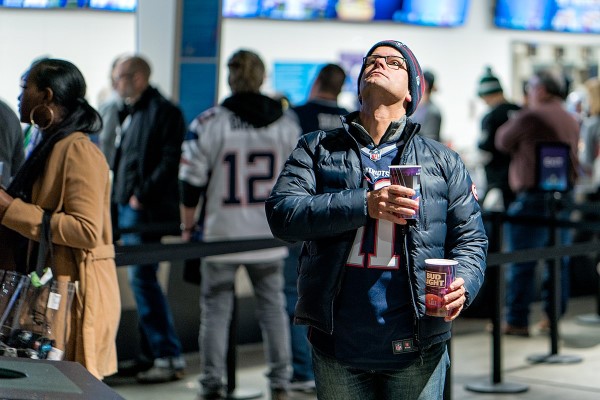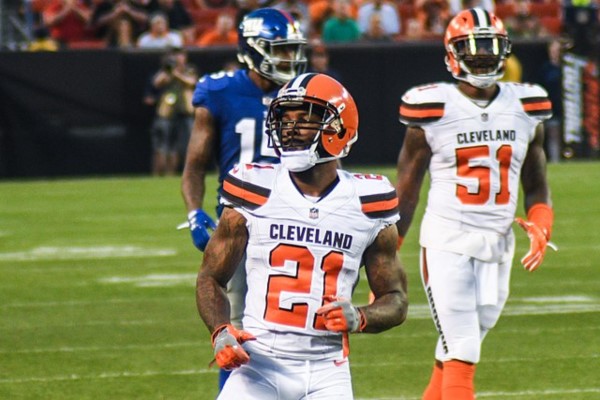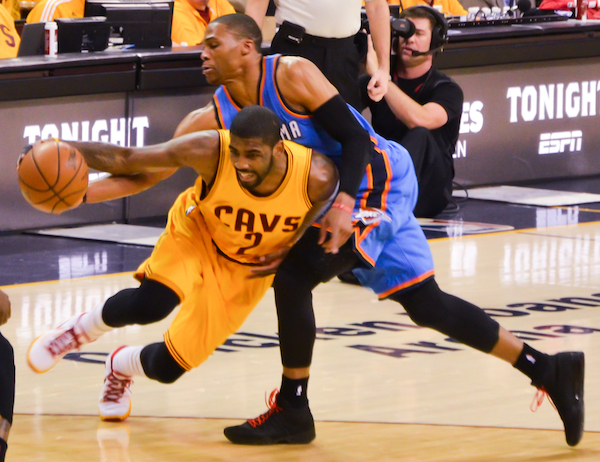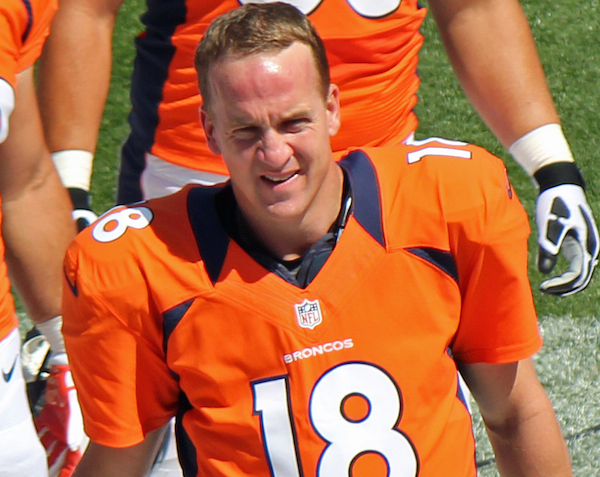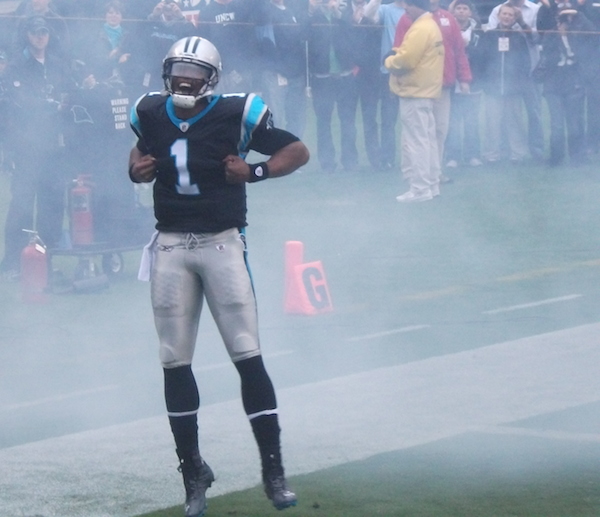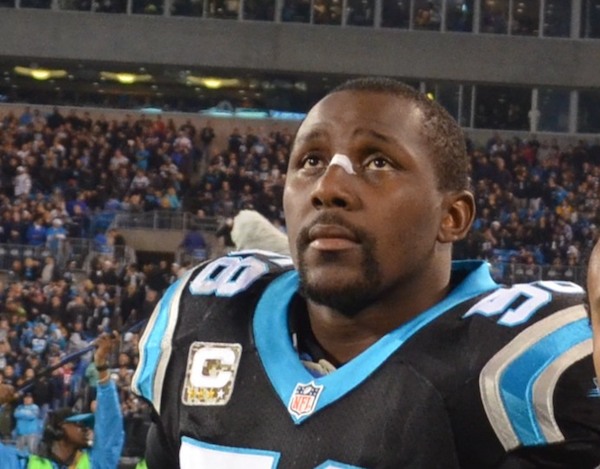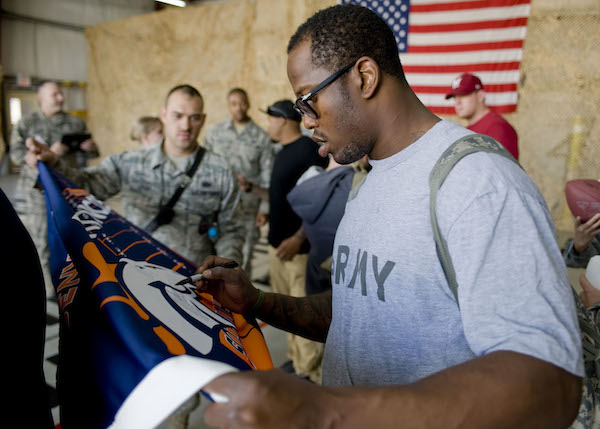tl:dr
The Super Bowl is between the Los Angeles Rams and the Cincinnati Bengals.
The Rams have been a winning team for the last five years, driven by their young, dynamic coach Sean McVay and a penchant for acquiring excellent veteran players from other teams. They’ve made the playoffs in four of the last five years and made it to the Super Bowl in 2018/2019 only to lose to the Patriots (ha!). Basically, they are where they should be and no one is surprised.
The Bengals are quite the opposite. Two years ago they were the worst team in the league. Their reward for that was to get first pick in that year’s draft where they selected a quarterback from Ohio, Joe Burrow, who had just had one of the best college seasons of all time, winning a national championship and the award for best player. Burrow’s rookie season last year was cut short when he tore his ACL, MCL, and a bunch of other stuff in his knee, but he returned this year and has been integral in Cincinnati’s Cinderella story of a year. Basically, they are where they should maybe be in a few years and everyone is surprised.
Here’s why you should root for the Rams:
You know how when you watch a soccer game and both teams spend most of the time passing the ball backwards and you wonder what would happen if just once a team threw caution to the wind and just tried to run straight forward and score? That’s the Rams. They’ve thrown everything reasonable at winning the Super Bowl and more. They’ve entirely mortgaged their future to win NOW in a way that no team has ever really tried before. They’ve assembled a group of star players worthy of one of those holiday ensemble movies by giving other teams basically all of their draft picks. It’s a high risk, high reward strategy. It’s admirable, in a way because it’s a strategy that takes winning a championship as seriously as football fans do, but in another way it feels kind of cheesy because poaching other teams’ best players to assemble your team doesn’t feel as virtuous as developing them yourself. It’s also a strategy that has not traditionally been thought to work as well in football as in other sports because of the relatively smaller impact a single player can have on a team game with 25+ players in important roles.
Here’s why you should root for the Bengals:
It’s never as hard to make a case for rooting for an underdog as an overdog. Rooting for the Bengals is rooting for an unlikely outcome – a team that goes from worst to first in two years while uniting a long-suffering fan base and overlooked city. A Bengals Super Bowl win would reinforce the overwhelming importance of the quarterback in football — it’s probably the only place where they might have an advantage over the Rams. It would also probably be more fun. The Rams will be a disappointment if they don’t win and relieved if they do. The Bengals will think, “we’ll get them next year” if they lose, but if they win, they’ll be jumping on top of stuff screaming in euphoria while smoking victory cigars and laughing hysterically.
Who are the characters?
The Rams constellation of stars:
- Quarterback Matt Stafford was the first overall player chosen in 2009 and then spent 12 years playing for the Detroit Lions — an obstacle to success that some of the best players in football history have not been able to overcome — before being traded to the Rams this summer. He’s a clear improvement to the quarterback the Rams had before, but the question of whether he is moderately overrated or was just stuck in a terrible situation is still an open one.
- Wide Receivers Cooper Kupp and Odell Beckham Jr.. Cooper Kupp is one of the Rams’ two big exceptions to their rule of acquiring their best players from other teams. He has played for the Rams his whole career but has never been better than this year when he led the league in every important wide receiver metric. He’s white, which is very unusual for top-level wide receivers, and some of the sports podcasts I listen to have been wondering how much of his success is at least partially because opposing players and coaches just don’t really believe he can beat them the way he is. Odell Beckham Jr. got extremely famous as a rookie when he impersonated Spider Man and caught a ball with just his pinkie while falling backwards and simultaneously sprinting at full speed. His old team, the New York Giants, doesn’t do very well with big personalities, particularly if they are young, brash, Black ones, which Beckham is, so they sent him to Cleveland, a fate second only to Detroit in its grossness. He was so unpopular there that they actually cut him in the middle of this year and the Rams snapped him up. Since then he’s been… very good.
- Aaron Donald, the other of the Rams enormous homegrown stars has been widely thought of as the best player in the NFL for his entire eight year career. The reason you might not have heard of him (aside from him being a football player) is that he plays defensive tackle, one of the most nondescript positions on most teams. The defensive tackle lines up opposite the center (the guy who snaps the ball to the quarterback) and depending on the way the defense is set up, either is a giant dude who mostly just acts as a boulder and tries not to let the offensive linemen move him or tries to tackle the quarterback but isn’t ever really expected to get there. Donald is the exception. From this interior position, he’s had as many sacks (tackling the quarterback with the ball) as anyone else in the league, even the players who play in positions more advantageous for this position. He’s also very much in the minds of opposing players and coaches. I heard an interview with a guy who had played against him on the offensive line (guarding the quarterback from people like Donald) and he said that his team and others adopt a “four hands on Donald” approach. That’s right, every time the ball is snapped, the offensive team feels like it’s worth it to sacrifice two players just to try to stop Donald… and they still often fail.
- Jalen Ramsey is the other big star on the Rams defense. He plays defensive back but in a way that is creative and unique enough that internally the Rams say that he plays the “star” position. One of the subplots of the game will be whether the Rams choose to have Ramsey shadow the Bengals best wide receiver or just have him play his normal role.
The Bengals don’t have the star power of the Rams, but they are driven by a trio of young players who will certainly become superstars if they win this game:
- Quarterback Joe Burrow, who I mentioned in the tl;dr is the driver of the train or some such metaphor. He’s, I dunno, really really good. He also has all the confidence of the young but somehow manages not to be gross about it. He smokes cigars to celebrate his victories. When asked whether the diamonds in his chain were real, he replied that of course they were, he gets paid too much for them to be anything but real. He’s a bit of a throwback quarterback because he’s not capable of running with the ball very much, he just gets the ball and throws the ball.
- Wide Receivers Ja’Marr Chase and Tee Higgins are Burrow’s main pass catchers. When the Bengals drafted Chase near the top of this year’s draft, most commentators said they had made a mistake because the Bengals seemed to need someone on the offensive line to protect Chase more than they needed another good wide receiver. Well, so far, that seems wrong. Chase and Burrow, who were teammates in college, have picked up right where they left off. Like Burrow, Chase isn’t the tallest, fastest, or most outstanding athlete, he just seems to play football better than everyone else. Higgins, a second year player who was friends in high school with Sonja’s cousin, has all of the physical qualities that Chase lacks. He is the tallest, fastest, and most outstanding athlete, and he makes an enormously overqualified secondary target for the Bengals.
- Oh, I should also probably mention Evan McPherson, the Bengals rookie kicker, who has made every kick he’s attempted in the playoffs this year and had the temerity to say to a teammate as he was going out on the field to kick a potentially game winning field goal in the divisional round, “well, it looks like we’re going to the Championship game.” Gah, so annoying, so confident, so… good?
What to watch for or how we’ll know who is going to win:
Well, the Rams should win, but because football is played with an oblong ball, who knows. Conventional wisdom says that the most important area to watch will be the battle between Aaron Donald and his quarterback mauling sidekicks against the Bengals offensive line. This is the Rams’ greatest strength against the Bengals weakest unit. And the same conventional wisdom would tell you that no quarterback is good enough to succeed when he’s on his back or being pummeled into Bolivia. (Then again, in their second playoff game this year, the Bengals gave up an all-time NFL record number of sacks and Burrow was still able to lead them to victory, so who knows?) Donald in particular is capable of wrecking all of the Bengals plans – he’s number 99 and as much as is possible given that the camera follows the ball, I’ll just be watching him when he’s on the field.
When the Rams are on offense, I’ll be watching to see how many of the Bengals defenders try to get to the quarterback and how many drop back to cover the pass catchers. In beating the Chiefs (the team most people thought would be in the Super Bowl), the Bengals defense frustrated Patrick Mahomes (most people think he’s the best quarterback in the universe) by putting eight players in coverage and only rushing him with three. This is one more/less than normal and it was oddly effective. Hindsight being 20/20, the Chiefs probably should have counteracted this move by running the ball instead of continuing to try to throw it. The Rams, one would think, will not make the same mistake. They like running the football and only hubris would keep them from responding to this defensive approach by doing the simple, effective thing over and over again.

